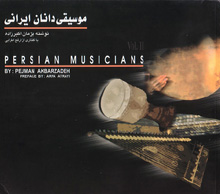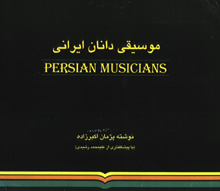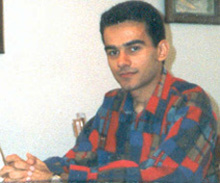
 In recent decades various works on the artistic activities of 20th century Persian (Iranian) musicians have been written. Among which, it seems "The History of Persian Music" [Sargozasht-e Musighi-e Iran] by Rouhollah Khaleghi – published in 1954 – and “Outlook on the Music of Persia" [Cheshmandaaz-e Musighi-e Iran] by Sassan Sepanta – published in 1990 – have been major reference points and are among the sources on this subjects. Some of the other collections have appeared in recent years, in book or CD form, whose publications have not only been a disservice to the musical culture of Persia, but rather, in spite of the protests and elucidation of musicians and others, they have led many art seekers and researchers off the right path and added to the country's confusing situation in music. The publication of such works might be a reflection of the general social, cultural and political situation in Persia (Iran). In spite of their special value, those, which master Khaleghi and Dr. Sepanta, have recorded, generally related to many years past while the lace of new, documented and unbiased information and research can easily be felt.  The first volume of the research book "Persian Musicians" by Pejman Akbarzadeh (born 1980), about the artistic activities, viewpoints and compositions of some Persian (Iranian) contemporary composers and conductors published in 2000. Ali Mohammad Rashidi (music critic, director of Tehran Conservatory of Music) wrote its preface. Also positive articles about it published in the Persian-language weeklies "Kayhan London” (No. 868, Aug. 8, 2001) by Mahmoud Khoshnam, “Ketab-e Hafteh – Tehran” (No. 79, Sep. 7, 2002) and in "Iranian Musicology Quarterly - Maryland" (No.12, Autumn 2002), by Dr. Mohsen Hajarian (M.H.Aryan),etc. The 2nd volume which is about the Santur, Qanun, Tombak and Daf Players published in October 2002. The 3rd and 4th volumes of this 4-volume collection the cover activities of the other musicians, will be come if the finical problems let its young writer! CONTACT Pejman Akbarzadeh :Persia_1980@hotmail.com Interview with Pejman Akbarzadeh Interview with Pejman Akbarzadeh, young author of the book, "Persian Musicians" (Vol. 1), as appeared in the Persian-language weekly, Ketab-e Hafte ("Book of the Week"), No. 79, September 7, 2002 "Persian Musicians" is the first volume of a 4-volume edition written by Pejman Akbarzadeh (born in 1980 in Shiraz), with a foreword by Ali-Mohammad Rashidi, music critic, the current director of the Tehran Conservatory of Music, and among former editors-in-chief of the monthly, "Iran's Music Magazine." It has been published by Navid-e Shiraz Publications and includes descriptions of the artistic activities, works, and viewpoints of some Persian (Iranian) contemporary composers and conductors, residing both in and outside of Persia. Question: The history and knowledge of music in Persia (Iran) has not been published in written form (especially in book form) in the way that it should have been. In your opinion, what is the cause of this lack of attention? Pejman Akbarzadeh: One of the most important reasons, which, of course, has its roots in our history, is the topic of the legitimacy (mashrou'iyat) of music. God Himself is a lover of Beauty. He does not have a good view of that which causes man to deviate from his right path. In Islam, too, there is talk of relevance (what is relevant to contemporary times) and attention is paid to the circumstances of time and place. Is the role which music plays today in the purification of man's spirit comparable with the role it played among the Arabs of the Age of Ignorance? Meanwhile, with the existence of certain fatwas, which have been issued based upon the legitimacy of healthy and sound music, the place of this art in our country is not yet clear. On the one hand, in Tehran, a scattered symphony orchestra and a few conservatories of low quality are active (supported by government funds). On the other hand, in the provinces, orders are issued to close down music institutes! On the one hand, in a large portion of our television programs, all kinds of music are heard while, on the other hand, showing the image of a musical instrument is strictly forbidden! The interesting point, however, is that the prohibition of broadcasting images of musical instruments, and the player of the instrument, only applies to Persians residing in Persia (Iran). For such programs are widely broadcast through the Iranian regime's satellite networks aimed at Persians and others residing abroad. In circumstances in which music is still not, in my opinion, officially recognized, any talk of why the history and knowledge of music is not published in written form is rather premature and even comical. Aside from these problems, contrary to the field of Persian literature, in the field of music we do not have many written works from the past. And even a portion of the few works we had, has been demolished by various encroachments. Of course, the music of Persia has a lways been an oral tradition (with the exception of a particular historical period when musicians such as Abdolqader Maraqi [died 1434] made efforts to record their works in "abjad" letters, or as of the latter part of the 19th Century when European musical notation was in vogue in Persia). In your first volume less attention has been paid to our traditional musicians while artists in classical music have been introduced. What is the reason for this? This is the first volume of "Persian Musicians." Musicians from other fields are covered in the following volumes. But I must explain that in the last few decades various works have been published on the activities of contemporary Persian musicians. Among them, in my opinion, the 3-volume edition, "History of Persian Music," by the late Rouhollah Khaleghi, and "Outlook on the Music of Persia," by Dr. Sassan Sepanta are prominent works, and they have been among my sources. In spite of the special value they have, these works generally relate to many years past, in which the lack of new, documented and unbiased information is easily felt. Meanwhile, many musicians who have been active in Western classical music have been to a great extent neglected, which, I think, is not right. Whoever has presented a valuable work in any field (be it Persian, Western or what have you) ought to be recognized. How much time ha s been spent on the publication of this book, and have you had a guide to help you? The preparation and organization of volume 1 took about four years. For certain reasons, it was published with a two-year delay in 2000. Various musicians, both in and outside the country, gave me very useful guidance, but in view of the existing atmosphere in the Persian music world, I believe they would prefer to remain anonymous. What has been the reaction of music lovers and critics to your work? As always, some have praised it and some have criticized it! Some of the critiques, which have been made with good intention, not based on personal taste, have been very useful in improving the following volumes. As a whole, however, reactions have been positive for me - of course, by those who are interested in the field, not by related organizations! As you are aware, such activities take place in other countries by a research team with the financial support of a university or cultural foundation, but in Persia (Iran), by spending more time and tolerating greater difficulties, one person must carry the work to fruition. The preparation of text is faced with innumerable difficulties, and its publication and distribution is faced with even greater difficulties. I do not claim that my work is imbued with a high cultural status; however, works of very low quality are speedily published and distributed in many of the country's bookstores while this work, in which effort has at least been made to abide by certain criteria, is found with difficulty only in a few music bookstores in Tehran. What has been the attitude of the publisher toward the publication of your book? Have you made a financial investment in it personally? I have not had a share in investing in the publication of this book, and, naturally, if the publisher had thought that the book would not sell, it would not have borne all the expenses of publication. The attitude of the publisher was good and, as they said, they were happy to be publishing the work of a "youth." But in any case, even though the book has been received well, I received about one-fifth of the royalties I was supposed to receive as an author! Do you have any final words? I only hope that these interviews, books and articles will one day cure an ailment, and they will be at least of some small help to those who wish to do something for the music of Persia. After all, gaining knowledge and information about the experiences of past generations is not a bad thing. The least it can do is to prevent having to start at ground zero. I hope that our country will one day find its rightful place, not only in the field of art, but in all fields. This country is filled with citizens who genuinely wish to do something for their country. To give them a small chance would not detract anything from anyone! Translation from Persian to English; By: ALI MEHRAN
|